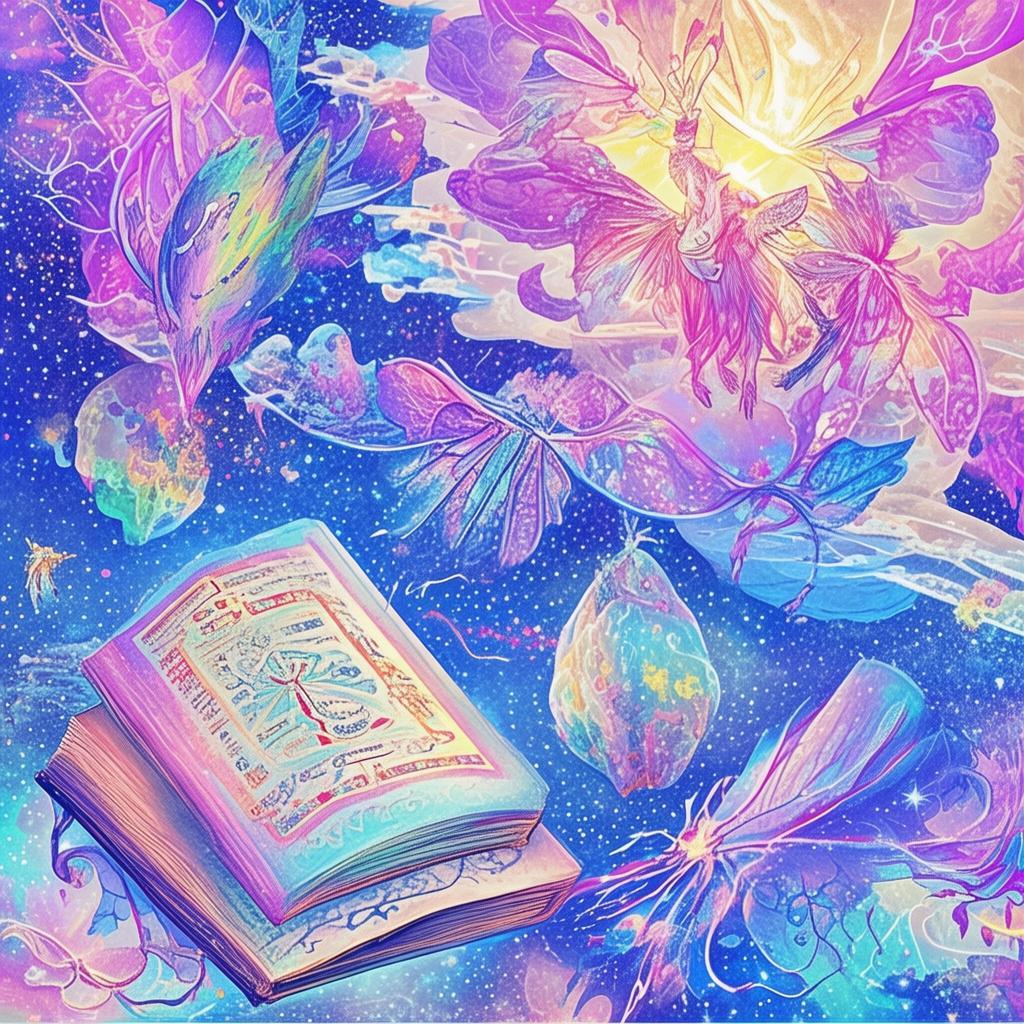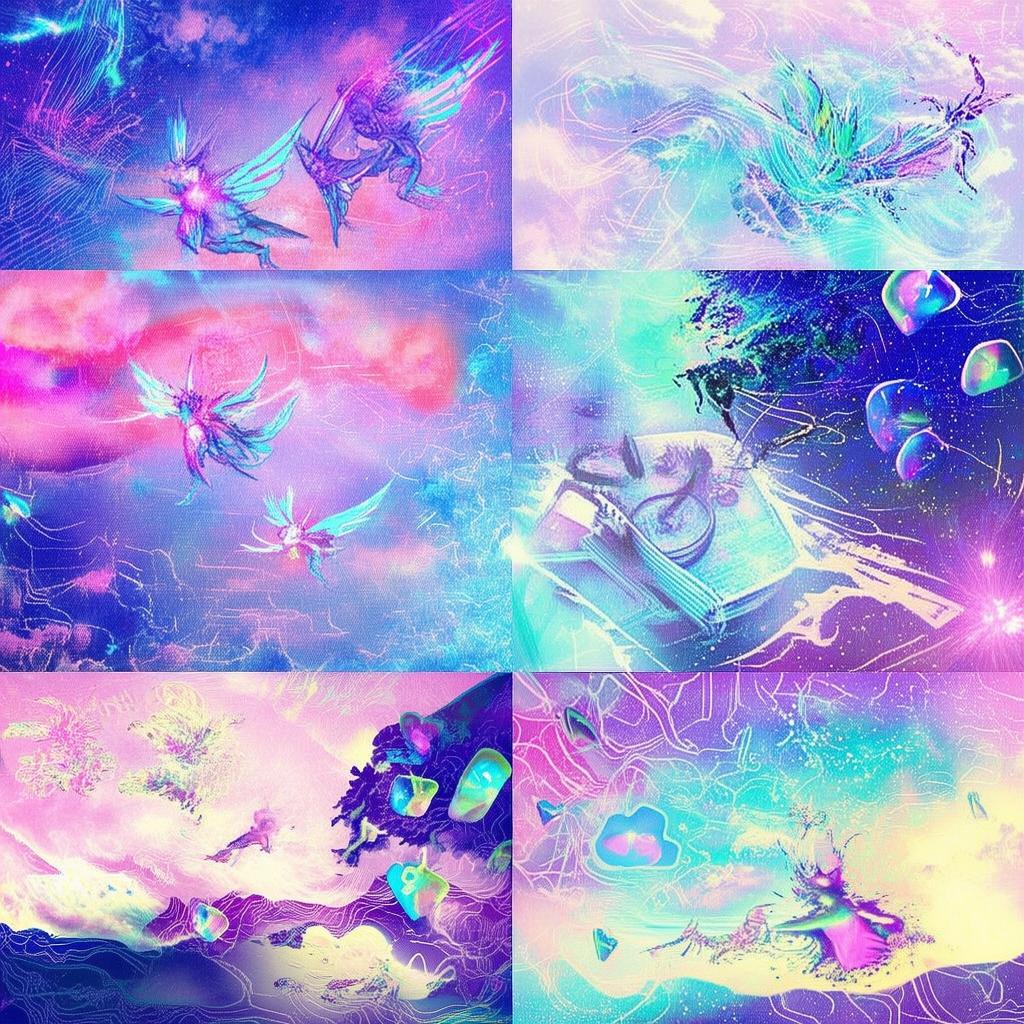The Unseen Paradox
The air hung heavy with the scent of aged parchment and the distant hum of the city beyond the library's thick stone walls. Inside, the hushed tones of scholars mingled with the rustling of pages as they pored over ancient tomes. Amidst this symphony of knowledge, a solitary figure sat at a cluttered desk, their eyes reflecting the glow of a flickering candle.
Ezekiel, the Bruised Philosopher, was no ordinary seeker of wisdom. His mind was a canvas etched with the scars of relentless contemplation, each line a testament to the battles he had fought against the very essence of existence. Today, he faced his greatest challenge yet—a paradox that threatened to unravel the fabric of his reality.
The paradox was simple, yet its implications were profound. It posited that the act of seeking truth could only be achieved by acknowledging the possibility of untruth. The more Ezekiel delved into the depths of his own consciousness, the more he questioned the very nature of his own mind.
"I must prove my own existence," he muttered to himself, a hint of desperation in his voice. "Yet, if I do not exist, how can I prove anything?"
The library's quiet was punctuated by the sound of Ezekiel's fingers tracing the edges of a worn-out book. The pages turned with a whisper, revealing a passage that seemed to echo his own thoughts:
"Seek not for truth, but for the truth of seeking. For in the pursuit of understanding, the mind becomes the very vessel that holds the paradox."
Ezekiel's eyes widened as he realized the implications of the passage. The pursuit of truth was not merely about uncovering the facts, but about understanding the process itself. It was a journey that required him to confront the very nature of his own mind, to question whether his quest was even valid.
He stood up, pacing the length of the room. The weight of the paradox bore down on him, a heavy cloak that seemed to suffocate his thoughts. He needed clarity, a guiding light to navigate the treacherous waters of his own mind.
As he reached the window, Ezekiel gazed out at the bustling city below. The people moved with a sense of purpose, each step a testament to their own reality. But what if their reality was nothing more than an illusion? What if the pursuit of their own truths was as futile as his own?
The thought sent a shiver down his spine. He turned back to the library, his mind racing with questions. He needed answers, and he needed them fast.
Ezekiel's search for answers led him to the city's most enigmatic figure, a man known only as the Whisperer. The Whisperer was said to possess knowledge that transcended the bounds of ordinary understanding. He was a philosopher in his own right, a man who had spent his life contemplating the nature of reality.
Ezekiel approached the Whisperer's abode, a small, dimly lit room that seemed to be hidden away from the world. The Whisperer himself was a gaunt figure, his eyes deep and piercing, reflecting the wisdom of ages.
"Seeking the truth, are you?" the Whisperer's voice was a soft rumble, like distant thunder.
"Yes," Ezekiel replied, his voice steady despite the weight of his thoughts. "I seek the truth of seeking. But I am lost, and I fear I may never find my way."
The Whisperer chuckled, a sound that resonated with Ezekiel's own uncertainty. "Then you have come to the right place, young philosopher. For the truth of seeking is a paradox, and like all paradoxes, it requires the mind to unravel itself."

Ezekiel's eyes widened as he began to understand. The Whisperer was not offering him answers, but rather a path to self-discovery. He needed to confront the paradox within himself, to accept that the pursuit of truth was a journey that could never be completed.
The days that followed were a whirlwind of introspection and revelation. Ezekiel delved deeper into the paradox, exploring the intricacies of his own mind. He questioned everything he knew, from the nature of reality to the very essence of his own existence.
As the days turned into weeks, Ezekiel began to see the paradox in a new light. It was not a barrier to truth, but a gateway. The pursuit of truth was not about arriving at a destination, but about the journey itself. It was about the act of seeking, the process of unraveling the mind's own paradox.
In the end, Ezekiel realized that the paradox was not a hindrance, but a companion. It was a reminder that the pursuit of truth was a lifelong endeavor, one that required constant vigilance and introspection.
He returned to the library, his mind lighter, his spirit renewed. The paradox was still there, waiting for him, but now he embraced it with a sense of acceptance. For in the paradox, he had found the truth of seeking, the realization that the journey was as important as the destination.
Ezekiel sat down at his desk, a smile playing on his lips. He picked up a quill and began to write, his words flowing effortlessly onto the page. The Bruised Philosopher had found his purpose, and with it, the peace that comes from understanding the nature of his own mind.
And so, in a world where the mind is a battlefield, the quest for truth continues, not for the sake of finding answers, but for the sake of the journey itself.
✨ Original Statement ✨
All articles published on this website (including but not limited to text, images, videos, and other content) are original or authorized for reposting and are protected by relevant laws. Without the explicit written permission of this website, no individual or organization may copy, modify, repost, or use the content for commercial purposes.
If you need to quote or cooperate, please contact this site for authorization. We reserve the right to pursue legal responsibility for any unauthorized use.
Hereby declared.









